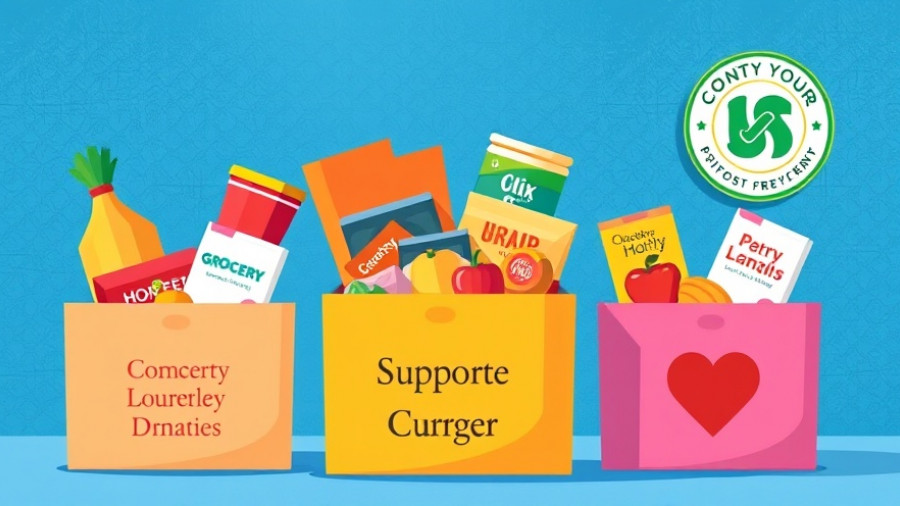
Understanding the Importance of the Expanded Senior Meal Program
Warren County officials recently took significant strides to combat food insecurity among seniors as part of their expanded senior meal program. As delays and potential cuts to the Supplemental Nutrition Assistance Program (SNAP) loom, the local government is mobilizing resources to ensure vulnerable populations, particularly residents aged 60 and older, have access to nutritious meals. With the support of the Warren/Hamilton Counties Office for the Aging (OFA), the county has increased the availability of its meal deliveries and congregate meal sites, enhancing services that are critical for many older adults in the region.
Navigating the Current Food Security Landscape
The experience of delays in SNAP benefits is not isolated to Warren County; it reflects a broader, nationwide trend that can leave seniors grappling with limited access to adequate nutrition. In Muskegon, similar issues arise with low-cost medical care and assistance programs becoming increasingly vital for keeping the community healthy. The dual challenges of navigating healthcare expenses and food insecurity can overwhelm seniors, making initiatives like Warren County’s meal program essential lifelines.
Opportunities for Community Engagement and Support
Local officials encourage residents to step up by donating nonperishable food items. Collection boxes have been established in key locations, such as the Warren County Municipal Center and the Department of Public Works, making it easier for the public to contribute. This grassroots effort not only supports immediate needs but fosters a culture of community support and interconnectedness that proves beneficial during uncertain times.
Connecting Seniors with Transportation Solutions
Additional aid comes through the senior shuttle program operated by the OFA and Warren County Veterans’ Services. The free transportation service is designed to assist seniors and veterans in accessing grocery stores and food pantries, reducing barriers that may hinder their ability to procure essential resources. Such services are vital in ensuring seniors remain mobile and can celebrate independence even amidst challenges.
Understanding the Wider Implications
The ongoing SNAP disruptions are a harbinger of potential long-term issues regarding food security in not just Warren County but across many communities. The consequences of food deprivation extend beyond nutritional concerns, often leading to more profound health issues. By ramping up local meal programs and connecting resources, Warren County exemplifies a proactive approach to safeguarding its elderly population.
Future Strategies for Sustaining Food Security
As Warren County continues to navigate these tumultuous waters, officials are committed to exploring further measures to assist their residents. This is a crucial effort, particularly for demographics more reliant on public assistance programs. Leaders are evaluating diverse solutions to ensure that essential services are retained, and residents’ health is prioritized amid political and financial instability.
Conclusion: Why Every Donation Counts
The initiative taken by Warren County highlights the critical need for communities to come together during challenging times. By donating to local food pantries and participating in community programs, residents can ensure that no senior goes hungry. These collective efforts serve as a reminder of the core value of community support and resilience.
By engaging in these food security initiatives, residents can play a key role in enhancing the quality of life for seniors in Muskegon and surrounding areas. Be part of this vital movement; consider donating to your local food pantry or volunteer to assist with transportation and meal delivery. Add Row
Add Row  Add
Add 




Write A Comment